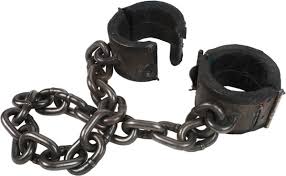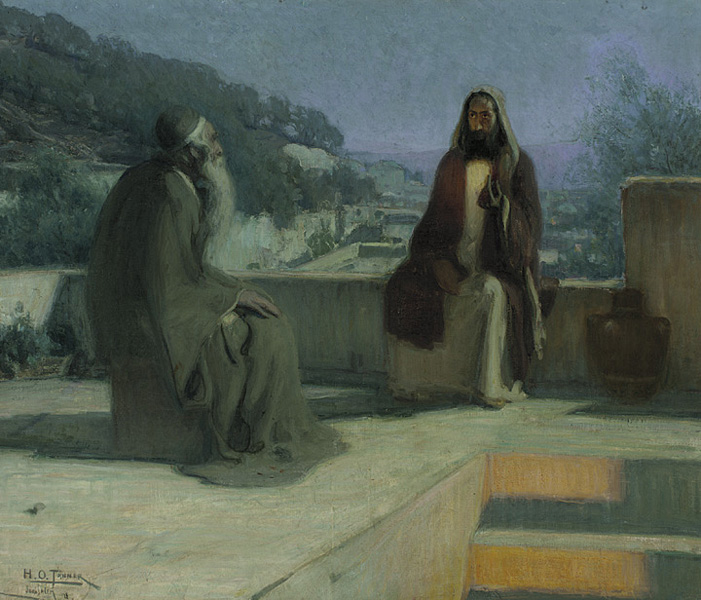Last week, The New York Times published an article about the case of Juana Villegas, an immigrant who was arrested during a traffic stop. She was nine months’ pregnant, and went into labor while she was in detention. She was shackled to a hospital bed during labor and recovery; in addition, she was not allowed to pump while in jail despite having been given a breast pump by the hospital. The Times reported on the (relatively) successful conclusion to the case: while her case was still uncertain in the courts, the government of Nashville ended up settling with her.
This case attracted several of our bloggers’ attentions here at cmt.com (including Charlie Camosy, Julie Hanlon Rubio, Beth Haile, Emily Reimer-Barry, Kathryn Getek-Soltis, and me; Tobias Winright, a former contributor, also contributed to our deliberations). We found the actions of various authorities in this case to be unequivocally against Catholic moral teaching. Thus, we presented (along with some evangelical counterparts, who equally found arguments in their respective traditions) an amicus brief to the court detailing our concerns; the brief was joined by amici briefs from women’s groups and health organizations. To my surprise, and perhaps to those of my colleagues, an amicus brief that stated some of our specific description of the moral concerns had not been made before in the courts. Now that the case has been made public and (relatively) settled, we want to highlight our particular concerns and make them public – in the hopes that more conversation and more direct aims toward justice may result.
Our main contention in the brief is that concern for pregnant mothers and women in labor is a pro-life issue that goes hand in hand with care and concern for the unborn, as well as concern for the dignity of prisoners and immigrants. While the specific medical concerns in this case are certainly important, our concern was to highlight that pregnancy and childbirth deserves and requires particular care if we truly do care for the dignity of all people. Likewise, being an immigrant does not remove a person’s dignity as the USCCB stresses in “Strangers No Longer” (ch 2, section 5), nor does being a prisoner remove the necessity of being treated as a human being.
Our concerns with labor and birth related to the vulnerability of women in labor and the protection that is generally afforded to laboring women, the pain of childbirth, and post-partum health and well-being of women, in conjunction with the well-being of their children. But this concern with labor and birth had to be seen, as well, in relation to the dignity and rights of prisoners and immigrants.
Catholics and other Christians have written particularly about the dignity of laboring women, as well as about the need for prisoners to have access to decent health care. Pregnancy and childbirth are physically and spiritually distinct from other routine kinds of medical procedures like appendectomies and hernia repair because of the way childbirth is at once connected to the larger community that stands to welcome the child and the new mother (i.e. family as well as society at large) but also because of the way in which childbirth is intensely personal. Scriptural witness and broad tradition make these points clear (Mary’s labor and birth came to mind for some participating in the discussions, for example.) These apparently contradictory points are markers of the ways that women speak about and prepare for childbirth – she surrounds herself with people who, in interactions over nine months, are the people she believes to be most helpful for accompanying her. They remain – still – markers of the ways society tends to protect and privilege pregnant women and new mothers, via maternity leaves, privileged parking spaces, and even simply routine showers of affection from complete strangers on pregnant women. While emergencies happen and best-laid birthing plans can go awry, the moves made by law enforcement officials in this case impinged on the concerns society has for pregnant women, let alone the concerns that society has for prisoners who are not pregnant. For example,guards of the opposite sex are forbidden from watching toilet use, undressing, or showering (Cumby v. Meacham); we claim that pregnancy deserves at least that measure of protection. (This is especially given that being in labor often means loss of control of urine and bowel functions; women describe transition and pushing, too, as being beyond their control to control….)
A second concern that we had is the way in which pain was regarded – or disregarded – in this case. Labor is often, even with  the most up-to-the-minute pain management practices, painful for women. The ability to move freely while in labor is one of many ways to mitigate pain. Shackling, however, adds more pain to existing pain. In addition, courts have already determined that shackling is a humiliating practice, but the precariousness of labor and birth in addition intensified that humiliation. Furthermore, the fact that labor and delivery is fraught with concerns about disability and death for mother and baby both raises real concerns about the compounding physical and psychological effects of shackling. That is, shackling confines women even further than the single-minded confinement of labor and its real possibilities of disability and death that also have an effect on women. Still further, Villegas was not a threat to the system (in the way that shackling supposes a threat) except in that American law considers her to be “illegal”. But the legal status with respect to citizenship is not commensurate with being a good citizen in the sense of being neighborly, or being no violent threat to others. Villegas has raised children and works in the US, supporting American society with that work.
the most up-to-the-minute pain management practices, painful for women. The ability to move freely while in labor is one of many ways to mitigate pain. Shackling, however, adds more pain to existing pain. In addition, courts have already determined that shackling is a humiliating practice, but the precariousness of labor and birth in addition intensified that humiliation. Furthermore, the fact that labor and delivery is fraught with concerns about disability and death for mother and baby both raises real concerns about the compounding physical and psychological effects of shackling. That is, shackling confines women even further than the single-minded confinement of labor and its real possibilities of disability and death that also have an effect on women. Still further, Villegas was not a threat to the system (in the way that shackling supposes a threat) except in that American law considers her to be “illegal”. But the legal status with respect to citizenship is not commensurate with being a good citizen in the sense of being neighborly, or being no violent threat to others. Villegas has raised children and works in the US, supporting American society with that work.
A final question that we raised related to post-partum medical care. Some of the risks women experience post-partum include clotting and hemorrhaging; Villegas’ continued shackling post-partum was, we think, a hindrance to treating her and any potential medical conditions in a manner approaching dignity and respect. In addition, the best practices for baby-care post-partum are also practices that can help women heal well – especially in breastfeeding, since hormones released during nursing help also contract the uterus to its normal size. The relationship between baby and mother is also important – and precarious – post-partum. Lack of care for Villegas simultaneously meant lack of care for her baby, and lack of respect for both their lives. The fact that Villegas was unable to pump in jail (even while it was clear, from the hospital’s point of view, that pumping was a necessity – since they had given her a pump) led to an infection and also led to continued indignity.
There is much more that could be said here. We are glad that Juana Villegas received a settlement from the government and are relieved that the case ended as it did. That said, we also worry that prevailing societal tendencies against immigration, prisoners’ rights, and the concern for the life and well-being of all people mean that this kind of case is no isolated prospect. Being pro-life means being consistently concerned, too, for the lives and well-being of immigrants and prisoners – and when all of those come into play as in this case – we’ve clearly got some work to do.





